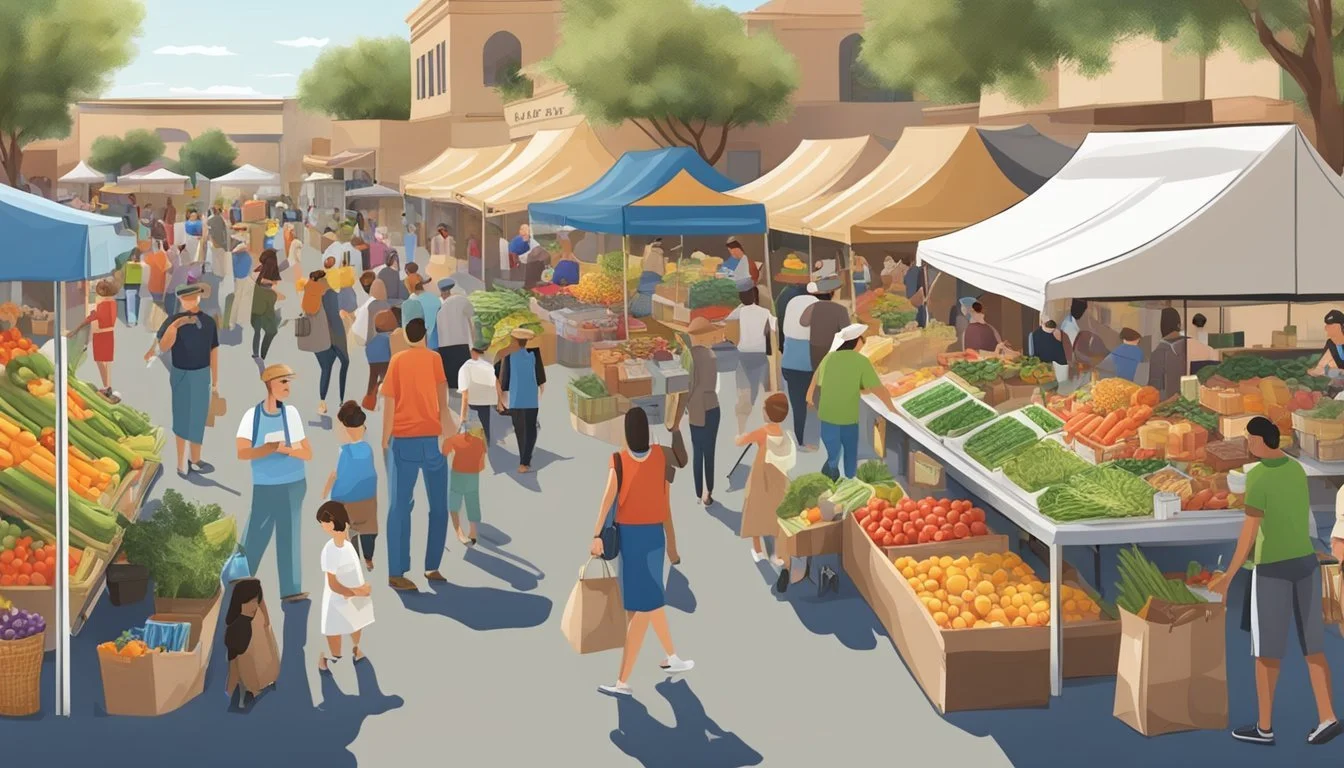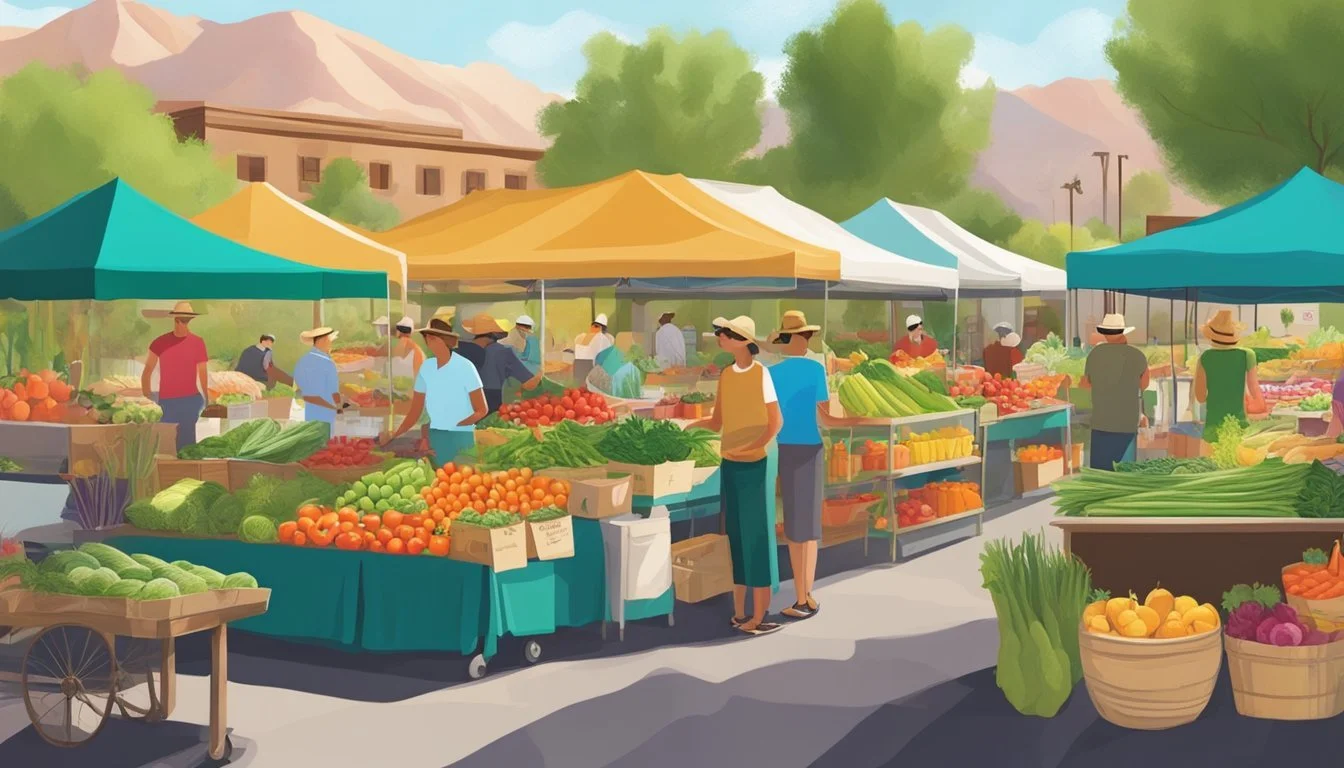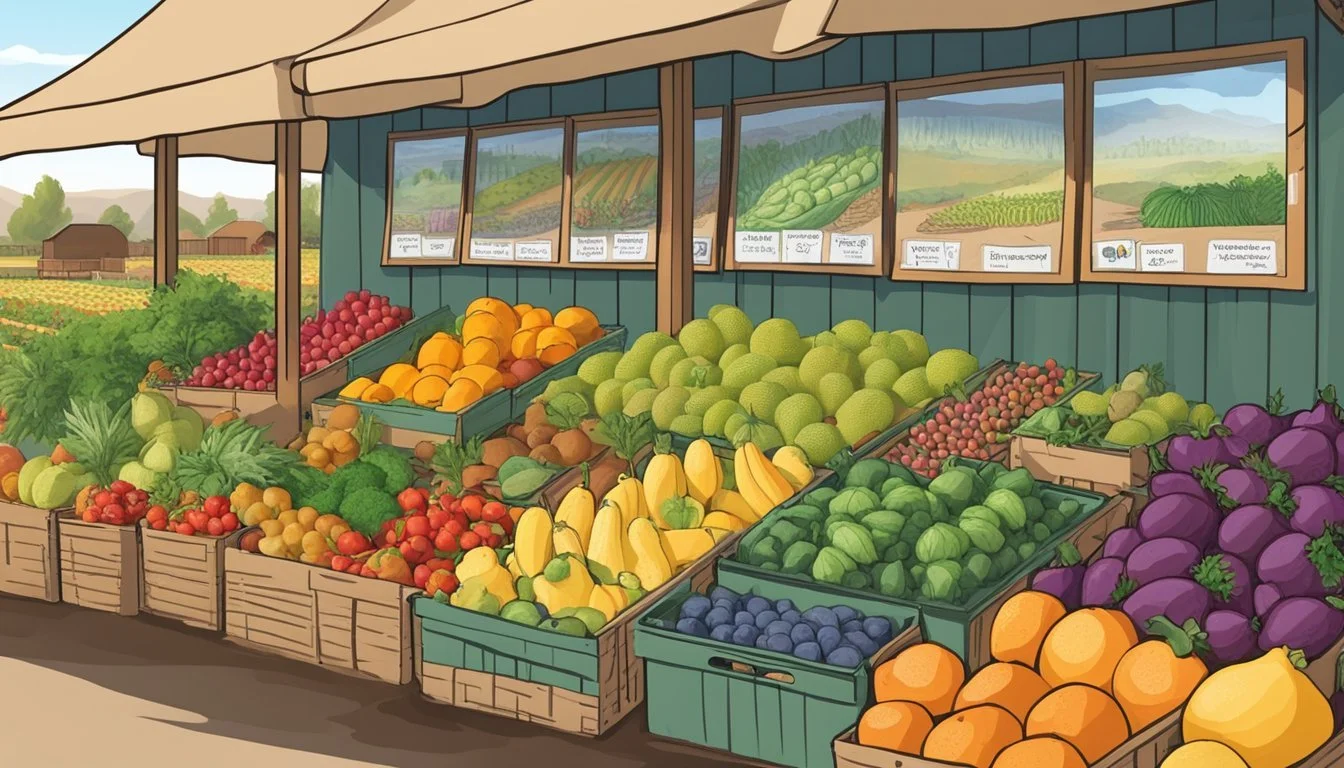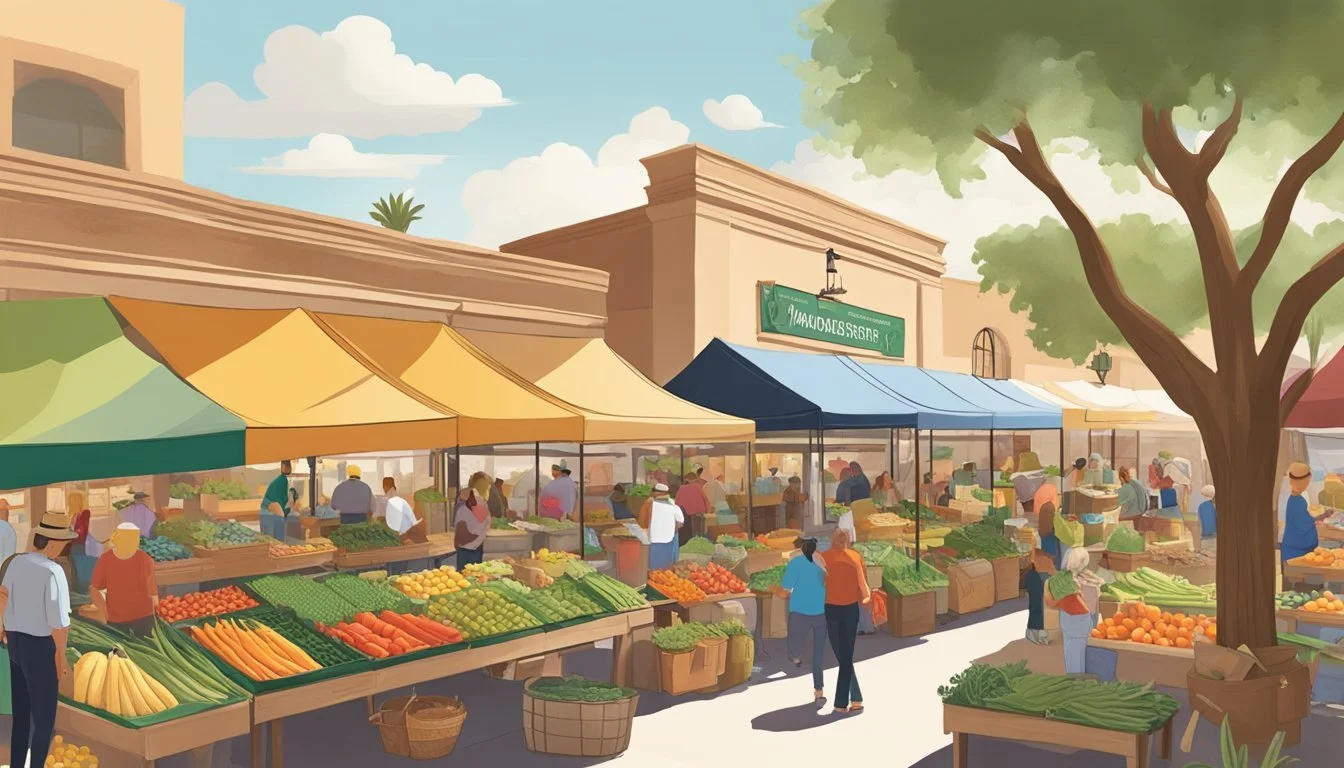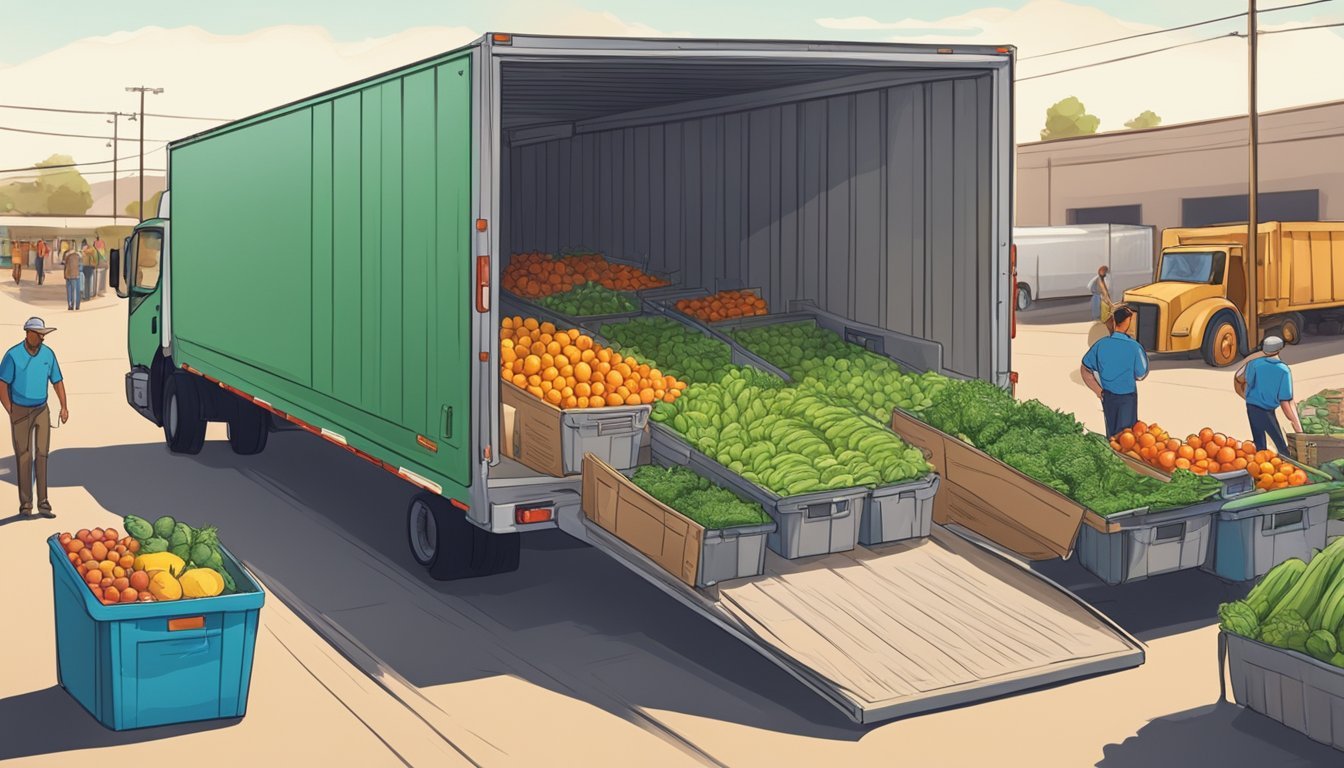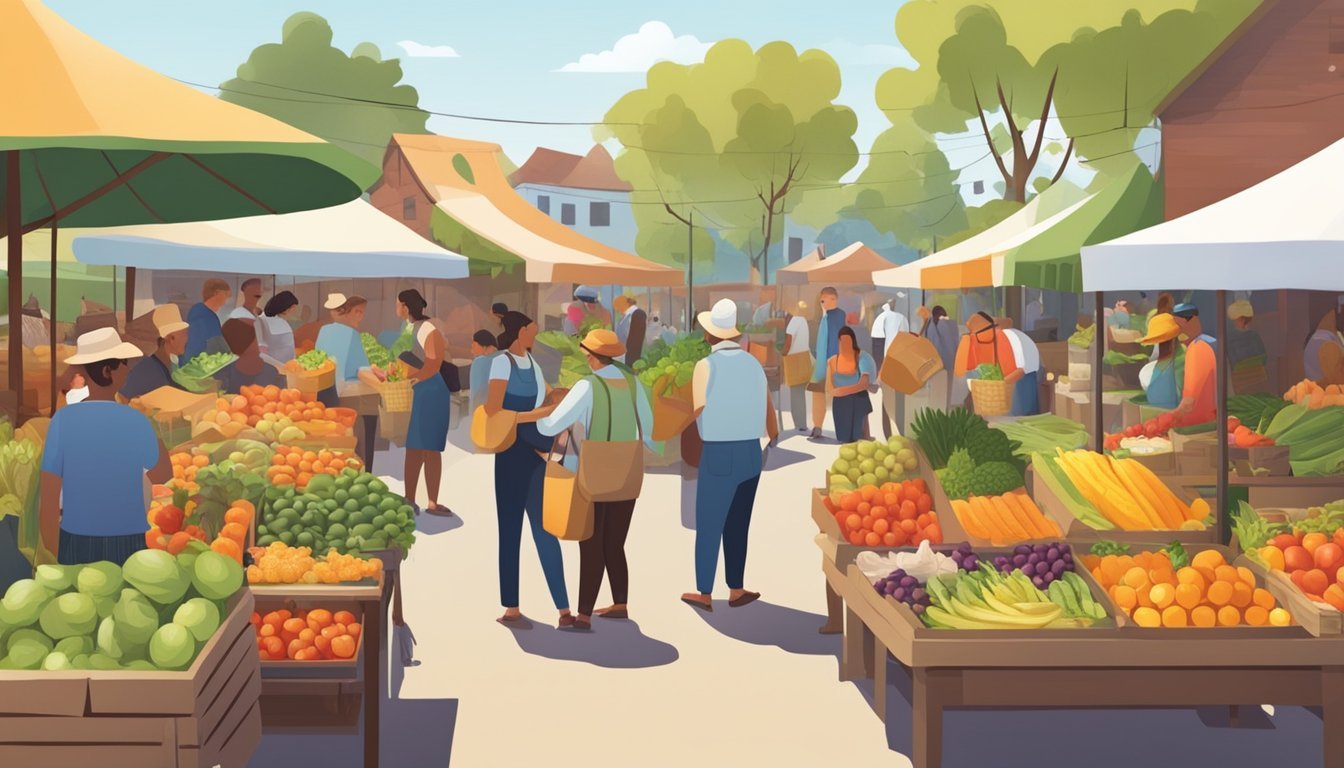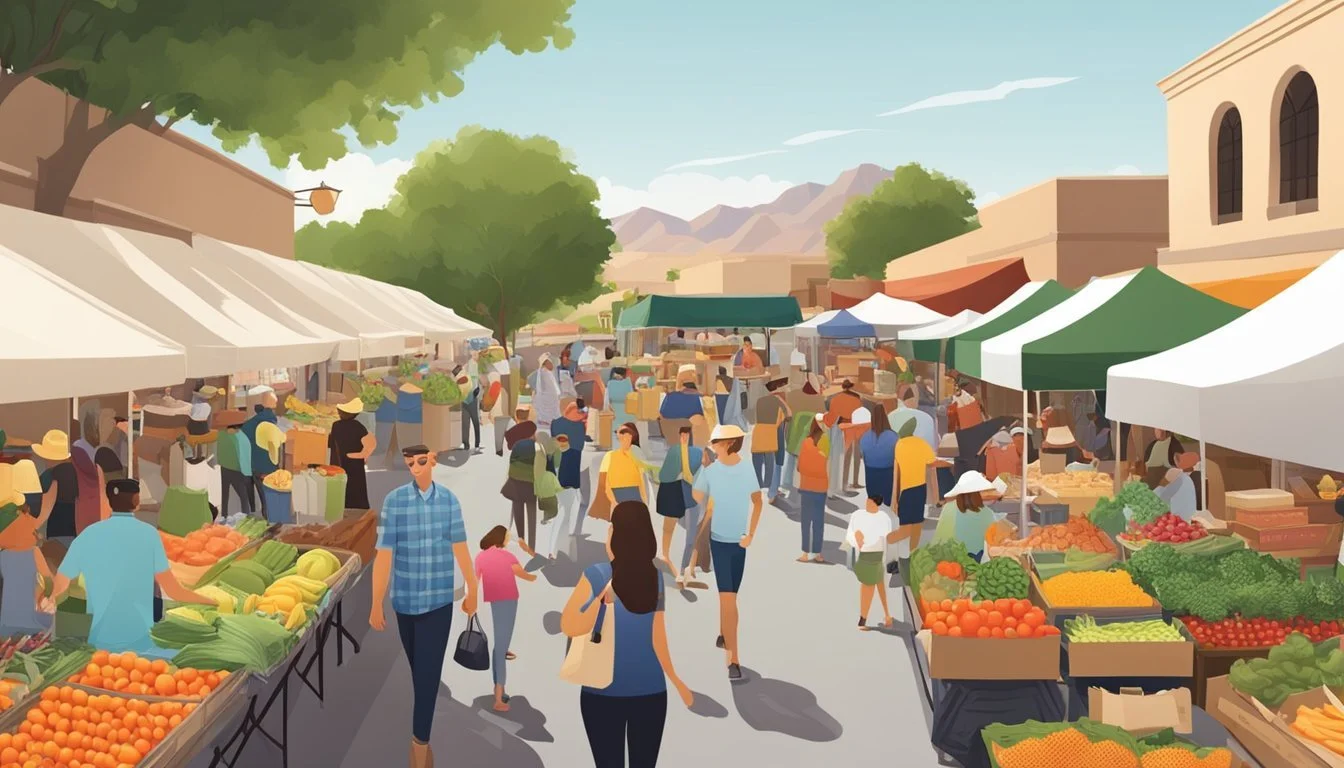Community Supported Agriculture (CSA) in Scottsdale, AZ
A Guide to Local Farm Partnerships
Community Supported Agriculture, or CSA, has established a firm foothold in Scottsdale, AZ, offering a way for residents to buy fresh, seasonal food directly from local farmers. This model of food distribution allows consumers to purchase subscriptions from local farms, creating a supportive relationship between the community and agricultural providers. As a result, participants receive a regular supply of a diverse array of farm products, which typically include fruits, vegetables, and sometimes additional offerings like honey, eggs, or dairy.
In Scottsdale, the CSA model has thrived as a response to the growing demand for locally grown and produced food. It has enabled farmers to commit a portion of their harvest to members who sign up, thus providing them with financial security and direct market access. Local CSAs have been particularly innovative, with some converting urban spaces into productive micro-farms, focusing not just on profit but often supporting social causes, such as aiding refugee communities through agriculture.
Scottsdale's CSA programs reflect the region's immense diversity in both climates and crops, thanks to farms located in different climate zones around Arizona. The adaptability of these programs provides a year-round bounty that benefits both the farmers, by smoothing out the uncertainties of crop production, and the community, by ensuring access to fresh, high-quality food. Whether through seasonal subscriptions or market-style pickups, CSAs in Scottsdale are a testament to the city's commitment to sustainability and community resilience.
Concept of Community Supported Agriculture
Community Supported Agriculture (CSA) represents a growing movement towards bridging the gap between residents of Scottsdale, AZ, and the local farms that provide them with fresh, seasonal produce. This model forges a partnership between consumers and producers, where community members receive a range of benefits, and farmers are supported through direct sales.
Principles of CSA
The foundational principles of CSA focus on mutual support and shared risk between local farmers and community members. Members pay in advance for a season's worth of produce, which allows farmers to plan and manage their farms with a clear understanding of their income for the year. This system enhances the viability of small farms and strengthens the relationship between producers and the community.
Benefits to Consumers and Producers
Consumers benefit from CSA as they gain access to fresh produce typically harvested within their own locality. In return, producers receive financial stability and a guaranteed market. Both parties enjoy an increased sense of connection with their community and have an active role in promoting sustainable agriculture practices.
Consumer Benefits:
Access to fresh, seasonal produce
Knowledge of where and how their food is grown
Producer Benefits:
Financial security with advance payments
Direct feedback from consumers
CSA Models
Various CSA models exist, but most follow the structure of members receiving regular fresh produce shares throughout a predetermined growing season. Some CSAs allow members to have a say in the crops grown, while others provide set shares.
Traditional Share-Based: Members receive a regular share of whatever the farm harvests.
Market-Style: Members choose their produce from a more flexible arrangement.
Subscription: Produce is delivered to members on a schedule, sometimes including non-produce farm products.
CSA Programs in Scottsdale
Scottsdale offers a range of CSA programs that connect consumers directly to high-quality, fresh produce from local farms. These programs offer various subscription options and prioritize sustainable and organic agriculture.
Local CSA Farms
Blue Sky Organic Farms: Known for their commitment to organic farming, they provide a variety of seasonal produce.
Maya's Farm: Offers fresh, organic produce and is renowned for community engagement and sustainable practices.
Crooked Sky Farms: Supplies diverse crops across the region, practicing sustainable farming.
True Garden: Not a traditional CSA farm, but it provides locally grown, organic produce using vertical farming techniques.
The Farm at Agritopia: Emphasizes community and sustainable practices, with a focus on organic farming.
Subscription Options and Shares
Scottsdale residents can typically choose from several CSA subscription options:
Full Share: Suitable for large families or those who cook often, providing the widest variety of produce.
Half Share: A smaller, more manageable option for individuals or small families.
Subscriptions usually run from May to October, aligning with the local growing season. Some farms allow customers to customize their shares based on preference.
Organic and Sustainable Agriculture
Scottsdale's CSA programs place a strong emphasis on organic and sustainable agricultural practices. Farms use methods that reduce environmental impact and support local ecosystems. Customers can expect:
Organic Produce: Grown without synthetic pesticides, herbicides, or fertilizers.
Sustainable Techniques: Including crop rotation, minimal water usage, and natural pest control.
By participating in a CSA program, locals directly contribute to the vitality of Scottsdale's agricultural community and help promote a sustainable food system.
Impact on Local Economy and Community
The integration of Community Supported Agriculture (CSA) in Scottsdale, AZ has reinforced the connection between local farms and the community, emphasized the role of urban agriculture, and facilitated educational opportunities in sustainable farming practices.
Support for Local Agriculture
Entities such as Gila Farm Cooperative have played a pivotal role in bolstering local farms. This direct partnership model ensures that money is funneled back into the local economy, which helps maintain agricultural jobs in Arizona. Buying shares from local CSA programs allows consumers in Scottsdale to receive fresh, seasonal produce while supporting the financial stability of local producers.
Urban Agriculture Initiatives
Urban agriculture in Scottsdale is thriving, with initiatives turning underused city spaces into productive areas. They provide residents with fresh food options and improve local biodiversity. For example, urban CSA programs have been established to adapt to the unique climatic challenges of the region, which, in turn, promotes a more resilient local food system.
Educational Opportunities
Local CSA models like those found in Scottsdale have become a conduit for educational growth. They offer invaluable hands-on opportunities for individuals to learn about sustainable agriculture practices. Participants gain insight into the origins of their food and the effort it takes to produce it, fostering a greater understanding of food systems within the community.
Product Range and Availability
The community-supported agriculture programs in Scottsdale offer a diverse array of local products, ensuring fresh, organic options for members throughout the year.
Types of Produce and Products
Scottsdale's CSAs provide a variety of vegetables and fruits that are locally grown and harvested. Members can enjoy everything from leafy greens and root vegetables to citrus fruits and berries. The range typically includes:
Lettuce
Spinach
Carrots
Tomatoes
Oranges
Apples
In addition to produce, some CSAs offer eggs, meat, cheese, and milk, supporting a well-rounded, local diet. An expanding product offering may also include added value items like freshly-cut flowers and prepared recipes to enhance the CSA experience.
Seasonal Availability and Variations
The availability of CSA products in Scottsdale varies with the seasons. This ensures that members receive the freshest produce at the peak of its flavor and nutritional value. Here's how the inventory typically changes:
Spring:
New crop of lettuce, peas, and carrots
Beginning of flowering season for fresh flower arrangements
Summer:
Abundance of tomatoes, cucumbers, and stone fruits
Continued availability of fresh flower bouquets
Fall:
Introduction of squashes and pumpkins
Transition to hardy greens like kale and chard
Winter:
Availability of citrus fruits and root vegetables
Introduction of winter-specific recipes utilizing seasonal produce
By subscribing to a CSA in Scottsdale, members support local agriculture and receive healthy, seasonal produce throughout the year.
Innovative Farming Practices in Arizona CSAs
Within Arizona's Community Supported Agriculture (CSA) scene, innovative farming practices are at the forefront, incorporating both advanced growing systems and the latest agricultural technology to enhance productivity and sustainability.
Aeroponic and Hydroponic Systems
True Garden in Mesa is a prime example of a CSA utilizing aeroponic towers to grow crops. This method allows plants to grow in an air or mist environment without the use of soil. The vertical nature of these towers leverages space efficiently, making it ideal for urban settings where land may be scarce.
On the other hand, hydroponic systems, which involve growing plants in nutrient-rich water, are also prominent in Arizonian CSAs. This soil-less method of farming allows for greater control over the plants' environments, reducing water usage and eliminating the need for chemical fertilizers.
Integration of Technology
CSAs in Arizona are integrating various technologies to monitor and manage agricultural processes. For instance, some use sensors to precisely track environmental conditions like humidity and temperature, enabling them to make data-driven decisions for crop management. Additionally, the incorporation of technology facilitates the operation of micro-farms, allowing these small-scale farms to optimize production and operate with greater efficiency.
By using these innovative approaches, Arizona's CSAs are not only providing fresh, locally grown produce to their communities but are also setting a standard for sustainable farming practices in the region.
Community Engagement and Education
Community Supported Agriculture (CSA) programs in Scottsdale, AZ, excel in offering educational experiences and engaging the community through food awareness. They provide practical learning opportunities that connect residents directly with local food systems.
Workshops and Farm Visits
CSAs around Scottsdale often host educational workshops for adults and children alike, fostering a deeper understanding of sustainable farming practices. Chow Locally, a notable food hub in the area, includes such initiatives in its operation, contributing to community knowledge about agriculture. Farm visits are organized to allow CSA subscribers and other interested parties to experience the farm-to-table process firsthand. These visits serve as an educational tool, highlighting the significance of supporting local agriculture and the benefits it brings to the community.
CSA and Local Food Movements
The presence of a CSA is a testament to the thriving local food movement in Scottsdale. These programs encourage community members to think critically about the origins of their food and the impact of their choices on the environment and local economies. By participating in a CSA, consumers become active members of this movement, with farmers offering shares of their crop yields in exchange for advance financial support from subscribers. This mutual relationship educates the public on the importance of local food systems and underscores the community's role in sustaining them.
Distribution and Access
In Scottsdale, AZ, Community Supported Agriculture programs prioritize efficient distribution and accessibility for their members. CSA members can expect a streamlined process for receiving fresh, locally grown produce directly from their community farmers, be it through convenient pickup points or home delivery options.
Pickup Locations and Delivery
CSA programs in the Scottsdale area typically offer multiple pickup locations to ensure easy access for their subscribers. For example, North Scottsdale Organics provides several valley locations where members can collect their weekly shares of certified organic produce. While specific CSA programs may have ceased operations, like Farmyard’s in Phoenix, there remains a strong network of active pickup points spread throughout the region, extending from Scottsdale to neighboring areas like Phoenix and Litchfield Park.
In addition to pickup options, some CSAs have implemented delivery services directly to homes or workplaces. This caters to the convenience factor, particularly relevant during times when mobility might be limited, such as due to the impacts of Covid19 mentioned in relation to AZ Market To Door.
Partnerships with Farmers Markets and Stores
CSAs in and around Scottsdale have formed strategic partnerships with local farmers markets and stores to further broaden distribution and offer additional collection points. These partnerships allow for members to collect their CSA shares during routine visits to their favorite farmers markets in Phoenix or local grocery stores, integrating CSA pickups into regular shopping habits.
Through collaborations, such as those mentioned by Good Food Finder, Arizona's farmers ensure that fresh produce seamlessly reaches tables while strengthening community ties and supporting the local economy. Some farmers may also leverage existing relationships with stores and markets to help new and smaller CSAs establish reliable access points for their members.
Membership and Support
Community Supported Agriculture (CSA) programs in Scottsdale, AZ, foster a direct connection between local farms and consumers. Signing up for a CSA can enrich one's weekly meal planning with fresh produce, while volunteering offers a hands-on approach to supporting local agriculture and nourishing community relationships.
Signing Up for a CSA Program
Prospective members can sign up for CSA programs typically at the beginning of the growing season. The process is straightforward: one pays for a "share" of the harvest upfront, which secures a weekly delivery or pickup of farm-fresh products. This model benefits both the farmer, who receives early season capital, and the member, who enjoys seasonal, local produce. It's important to note that variations of CSA shares might include a variety of locally grown and made goods, such as baked items and specialty foods, further supporting the local economy.
Volunteering and Community Support
Volunteering in a CSA program is an excellent way for individuals to deepen their understanding of local food systems and contribute to farm productivity. Many farms encourage volunteers, often allowing for a trade of time for produce. This symbiotic relationship enhances community support, as friends and neighbors come together, forging connections through their shared efforts. Moreover, certain CSA initiatives in the Scottsdale area may have a social mission, such as supporting refugee communities, thereby extending the impact of one's contributions beyond just agricultural support.
Case Studies
This section explores specific instances of Community Supported Agriculture (CSA) programs in Scottsdale, AZ, examining both their successes and the challenges they face.
Local Success Stories
Blue Sky Organic Farms is a shining example of effective CSA implementation. They have a well-established distribution of organic produce that not only meets the needs of its members but also fosters strong community connections.
At Maya's Farm, the emphasis on education alongside distribution has resulted in a CSA program that not only provides produce but also teaches members about sustainable agriculture practices.
Crooked Sky Farms, known for its diverse crop selection, has managed to customize its CSA boxes successfully, which has led to increased customer satisfaction and retention.
Meanwhile, The Farm at Agritopia has capitalized on its urban location to attract a wide range of CSA members, showcasing that farms can thrive in more densely populated areas.
Challenges and Resolutions
Despite the successes, each CSA has faced challenges. For instance, Blue Sky Organic Farms initially struggled with distribution logistics but resolved this by developing a robust online system for orders and pickups.
Maya's Farm tackled the issue of soil degradation through crop rotation and other regenerative farming techniques, ensuring long-term sustainability of their CSA program.
Similarly, Crooked Sky Farms once confronted a lack of variety in the off-season. They overcame this by collaborating with other local farms to maintain diversity in their CSA offerings year-round.
The Farm at Agritopia worked through zoning issues to establish their farm in an urban center, setting a precedent for future urban farming endeavors in the area.

